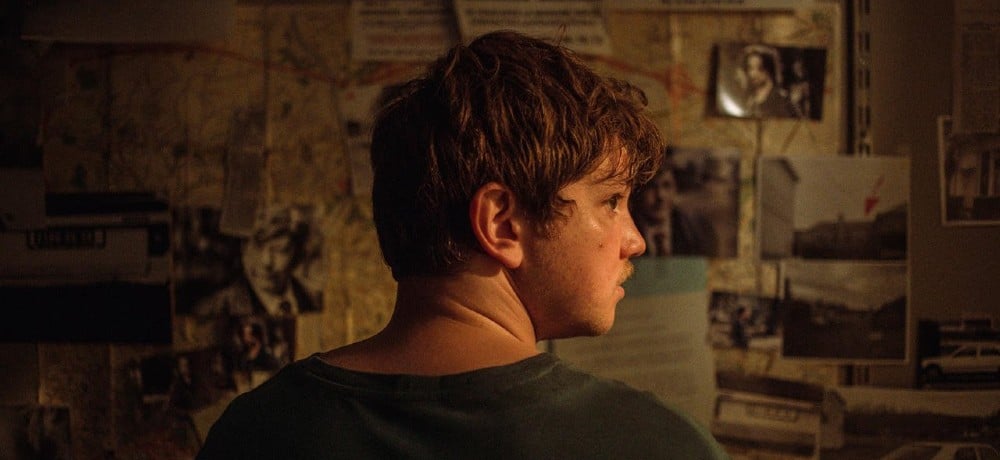


An immense yet slinking police procedural that slips with disturbing ease into its audiences’ subconscious, Fabrice Du Welz’s Maldoror owes a debt to many contemporary serial killer creepers to come before it (from the measured, detached obsession of David Fincher’s Zodiac, to the rotten-right-down-to-the-guts corruption of Claire Denis’ Bastards, to the very recent dark web paranoia of Pascal Plante’s Red Rooms) but comes together as a formidable, restrained, uniquely resonant work that finds the director at the height of his powers in telling a story at once hauntingly personal and broad in scope.
In early ‘90s Belgium, impulsive young police officer Paul Chartier (Anthony Bajon) is preparing to marry his sweetheart, Gina (Alba Gaïa Bellugi) but is soon distracted when he’s tapped by his superior, Hinkel (Laurent Lucas) to participate in Maldoror – a secret operation to monitor a dangerous sex offender named Marcel Dedieu (Sergi López) and investigate the abduction of two pre-teen girls. But, as Chartier gets closer to uncovering the truth, he grows increasingly erratic and frustrated with the calcified bureaucracy of his department, jeopardizing a case that has ramifications not just for those immediately involved, but the broader social and judicial fabric of his country.
Maldoror is inspired by the Affaire Dutroux, a notorious incident that completely reshaped Belgium in the 1990s. Named for serial killer, rapist, and child molester Marc Dutroux, the situation caused broad public outcry and distrust of the country’s criminal justice system, resulting in the dissolution of the system up to that time and a complete restructuring. The film is set against this backdrop, with Bajon’s character a member of the Gendarmerie, a civilian police organization that would be abolished by 2001 after the Dutroux scandal. From the start, Du Welz makes it clear that the Gendarmerie are a force in decline, with Chartier getting a mere slap on the wrist for violently assaulting a citizen during a search of his home. Du Welz makes it clear from the start who the perpetrators of the abduction are and chooses instead to squeeze drama from the ineffectiveness of the Gendarmerie and Chartier’s simmering rage against them.
Though primarily associated with New French Extremity for his 2004 film Calvaire, Du Welz is at his best in a more restrained gear, and Maldoror is all the more frightening for how much is implied rather than seen. Utilizing his signature handheld camera to great, fly-on-the-severed-ear effect, there’s a rueful immediacy to what he chooses to show, combined with Vincent Cahay’s transcendentally chilling, whistle-heavy score. But actor Anthony Bajon is the film’s greatest asset. Nervy and disarmingly boyish with a shitty little mustache, there’s something likable but slightly lascivious about the French actor that makes him the ideal guide to follow into Du Welz’s netherworld of rohypnol birthday cakes and slime-smothered, flesh-hungry pigs. Chartier and his targets have the stink of dead men walking in a reality morally decayed to the point of collapse, and though the film is long, there’s clammy pleasure and howling pathos in picking at its knotted narrative while watching Bajon’s anti-hero slide measure-by-measure into a hell borne of his own obsession.
But what is Maldoror about, ultimately? Is it the way in which the principles of seemingly rational people can crumble when confronted with something as slippery as true evil? The shapeless elusiveness of justice and the limits of seeking it in a flawed, corrupted social order? Or is it that there really is no justice, merely violent acts and equally violent responses that do little more than shout our own rightness against the deafening wind of a deranging moral indifference? Like many such long winding cinematic crime stories, Maldoror can’t find an answer, but its questions linger with ghostly persistence, like maddening, half-heard whispers from behind a cellar wall.
Movie Score: 4.5/5